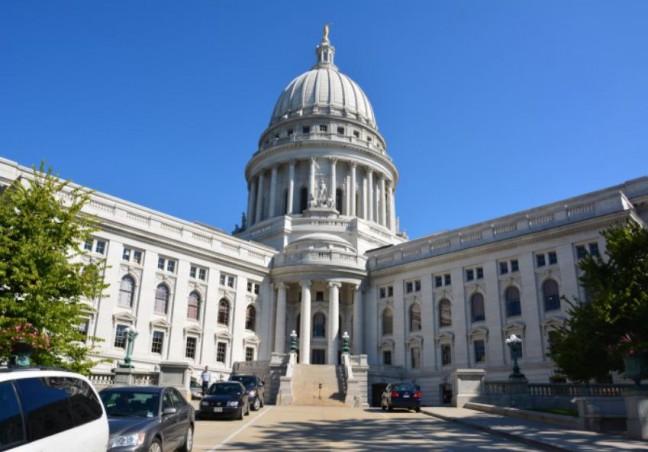There are at least two federal district court cases that exist to support government officials’ social media account properly fitting the role of “designated” public forums, or previously closed spaces that are deemed open for free expression. This issue has now reached Wisconsin’s western district court with the ruling on One Wisconsin Now v. Kremer, Jesse et al. The case affirmed three state assembly members violated the first amendment when they each blocked the plaintiff, a liberal advocacy group, on Twitter.
The lawsuit challenged state Assembly Speaker Robin Vos, R-Rochester, budget committee co-chair Rep. John Nygren, R-Marinette and former Rep. Jesse Kremer, R-Kewaskum, arguing that the social media barrier, being blocked from a public forum and unable to interact with the lawmakers’ tweets, was viewpoint discriminatory.
“Public officials have created a public forum using public resources to discuss public policy … It should be open to all members of the public, period,” former One Wisconsin Now director Scot Ross said.
Though the court determined remedy is necessary, the case is still in progress to determine an appropriate remedy. The question of the First Amendment as it relates to social media is still relevant here. So let’s break it down into a simple summary and possible implications.
Vos’ disrespect of open records laws detracts from functioning democracy
One main clause of the First Amendment is the freedom of expression, or protection from government censorship. To be clear, there is no a “right” to an open public forum under the First Amendment. People making that argument should be careful. We close off public forums all the time — these are a subgroup of designated public forums called “limited forums” (see Good News Club v. Milford Central School) and they can discriminate against certain groups or the discussion of certain topics. In the One Wisconsin Now case, the court upheld the Twitter accounts were designated public forums because the lawmakers operated their accounts as state actors, not private citizens, and intentionally opened their accounts on a highly-interactive platform to the general public, making no attempt to discriminate based on constituent status.
When the government opens up a non-traditional forum for expressive activities, it is not allowed to discriminate based on viewpoint (for a case close to home, see Madison School District v. WERC). The court in the One Wisconsin Now case found every defendant engaged in discrimination against the liberal perspective, often as a way to protect their constituents from crude comments. This viewpoint-based exclusion from a designated public forum in addition to the forum’s vital governmental functions are the same reasons the court in Knight v. Trump used to affirm the plaintiff’s First Amendment rights.
Evers’ social media creativity shows commitment to reaching young voters
While the main thrust of the argument is sound and the case is mostly settled, a few mechanical implications arise with this verdict. First, where do we draw the line between individuals using their accounts for personal reasons and using them for government purposes? Many use their accounts for both. On the same lines, many politicians, both Republican and Democrat, use Twitter’s blocking feature. The government and Twitter would need to make a concerted effort to compel all political actors to unblock everyone they have blocked for unfavorable viewpoints. Second, the Supreme Court has said “… a person’s right to speak is not infringed when government simply ignores that person while listening to others.” Thus, we are not completely opposed to the idea of creating echo chambers. So long as there remains a space to interact, post grievances, etc., making one website a safe place for particular voices is not entirely an unconstitutional idea.
Lack of political diversity on college campuses stifles productive free speech
Third, Twitter is a very interesting type of public forum in that most of the issues related to blocking are easily overridden. Unlike banning someone from a website or physically restraining someone from entering a place, on Twitter, all the blocked user has to do is log off and they can view any public account. If a blocked user wants to make comments, they can create a new profile for free.
The First Amendment “… does not forbid a viewpoint-neutral exclusion of speakers who would disrupt a nonpublic forum and hinder its effectiveness for its intended purpose” (see Cornelius v. NAACP Leg. Def. Fund). Given there are many constitutional reasons for limiting a public forum, it is worth asking what kinds of benefits there are to siloing ourselves in certain social environments, such as Twitter.
If a particular advocacy group is being particularly hostile to a policymaker’s constituents, many might agree there should be some way to limit, without entirely excluding, their ability to contribute to public discourse — hence, the blocking feature.
Lianna Schwalenberg ([email protected]) is a recent graduate with degrees in communication arts and philosophy.














